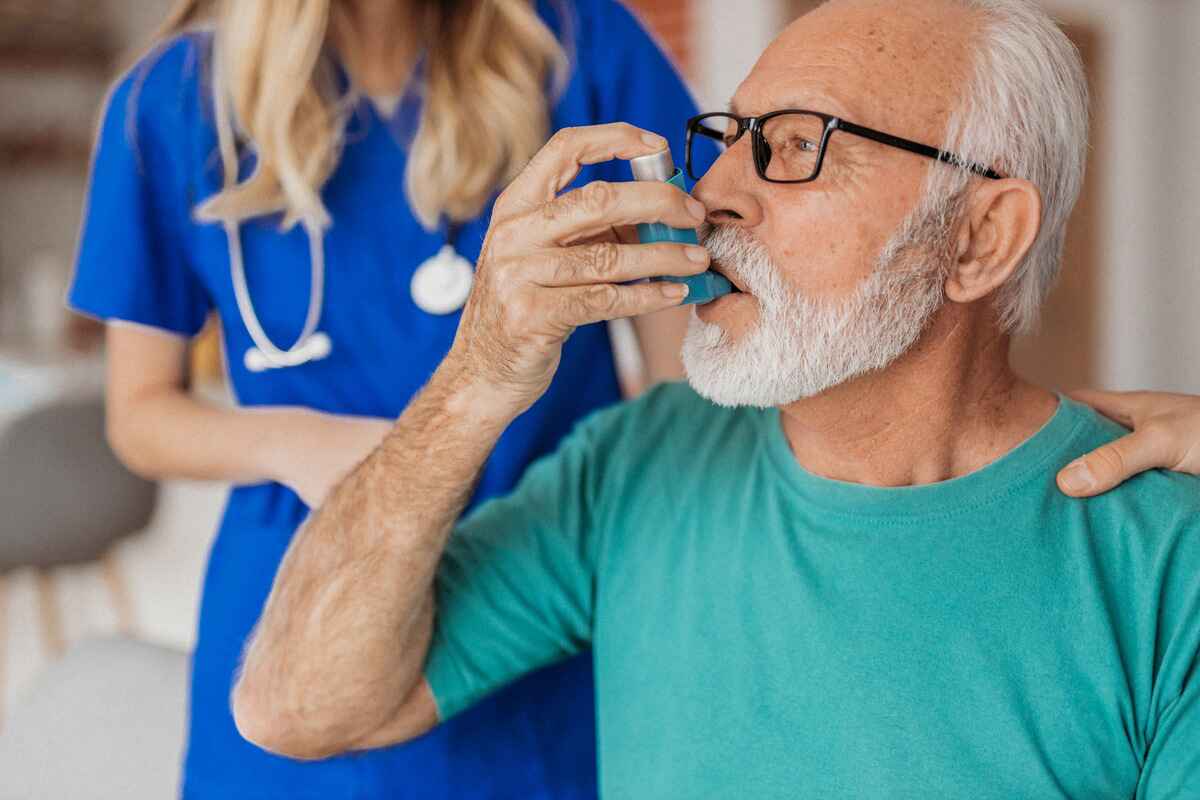Asthma and Chronic Obstructive Pulmonary Disease (COPD) make breathing difficult for millions of Americans, and there is no cure for either condition. However, there are many treatments to help people get the most out of life even with these conditions, according to pulmonology specialists with Yale New Haven Health.
“Both asthma and COPD present with very common symptoms like cough, shortness of breath or wheezing,” said Mandeep S. Rahi, MD, a specialist in Pulmonary Disease Medicine with L+M Hospital and Northeast Medical Group. “Many people ignore such common symptoms, but if you have them for a long time, or if they are unexplained, then you should get tested for asthma and COPD.”
Signs and symptoms of asthma
Asthma makes it hard for people to move air in and out of their lungs; the condition can produce mucus and airway inflammation, which is why a “wheezing” sound is often associated with the disease. Asthma affects people in different ways. Some may have “asthma attacks” frequently, while others may only be affected during exertion. Others may be impacted by their environment; their lungs may be aggravated by airborne substances such as pollen, mold or pet dander. Signs your asthma is getting worse could include trouble sleeping because of poor breathing.
“There are actually a number of different kinds of asthma, so we no longer think of it as just one disease,” said Dr. Rahi, who offered asthma statistics. “If you think you have asthma, we do encourage you to see a doctor, because getting treatment for asthma can help reduce the chance of long-term lung damage and prevent the condition from getting worse.”
Your primary care provider or a specialist can test for asthma using several devices that measure aspects of your breathing. Dr. Rahi encourages many patients to undergo Pulmonary Function Testing at L+M Hospital, for example. One test, a FeNO test, requires a patient to blow into a machine that measures nitric oxide levels in the breath; elevated numbers suggest inflammation in the airways, which points toward asthma. Other similar tests can measure the rate at which you exhale. Very often, these tests have to be repeated to ensure consistent test results. Many patients take home a flow meter to record “peak flow” scores while in their natural environment.
Treatments are sometimes conducted on a trial basis, simply to see what works best for different people, including use of inhalers to open the lungs to enhance breathing.
“Treatment is slightly different for asthma and the COPD patient,” Dr. Rahi said. “In asthma, we primarily use inhaled steroid therapy to counter inflammation in the lungs. In severe cases we employ advanced therapies like injectable biologics which directly counter the inflammatory cells. In some challenging cases, we also have further resources available across the Yale New Haven Health system.”
What is Chronic Obstructive Pulmonary Disease or COPD?
COPD, which includes chronic bronchitis and emphysema, is a long-term progressive lung disease that can be life-threatening, as airways in the lungs narrow, walls between air sacs are destroyed, and air sacs lose their ability to stretch and shrink back. COPD is often not found until it is more advanced, as many people simply think their shortness of breath is a sign of getting older.
Doctors will take a full assessment of each patient who is suspected of having COPD, including a history of smoking, exposure to second-hand smoke, exposure to toxic fumes and chemicals, any family history of lung disease, the times of flare-ups, and a review of any other comorbidities such as heart disease. Tests could include a chest X-Ray and/or a CT scan.
“At L+M Hospital, we treat the majority of our patients right here for both COPD and asthma,” Dr. Rahi said. “We treat COPD patients up front with inhaled bronchodilators, but in some cases, we do add inhaled corticosteroid therapies as well. In severe cases, patients can be evaluated for lung transplant or other advanced therapies like endobronchial valves performed at Yale New Haven Hospital.”
Patients with COPD can be helped with medications, but also sometimes by attending pulmonary rehabilitation programs run at various locations across YNHHS. There are also YNHHS smoking cessation programs for people who are struggling to quit cigarettes.
“We strive to provide the greatest of care to each person by individualizing their medications, their treatment plans and providing lifestyle enhancements,” Dr. Rahi said. “The goal is always to help each person continue to live their life to its fullest, because we know that few things are more important than breathing.”




